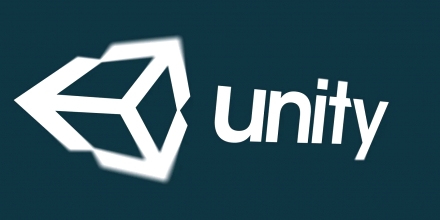Overhauling controversial pricing to win back independent developers
23.09.2023 posted by Admin

Unity has made a significant reversal in its controversial pricing strategy for its cross-platform game engine, which was widely criticized by users. Although a new pricing policy is still in the works, it is now much more favorable to independent developers who had strongly opposed the initial proposal, some even considering abandoning Unity.
These changes were announced just last week and immediately faced backlash from the gaming community. This led to a rushed attempt to clarify the "runtime fee" that would be charged for games exceeding a certain revenue threshold. The initial plan was met with widespread disapproval, not only due to the increased costs it would impose but also because it seemed to indicate a disconnect between Unity and its user base.
However, less than two weeks after its introduction, Unity has essentially scrapped the runtime fee policy and is now making amends with its customers. Marc Whitten, the head of Unity Create, issued a sincere apology and outlined the modifications.
To quote Whitten, "I want to start with this: I am sorry. We should have spoken with more of you and we should have incorporated more of your feedback before announcing our new Runtime Fee policy. You are what makes Unity great, and we know we need to listen and work hard to earn your trust. We have heard your concerns, and we are making changes in the policy we announced to address them."
Under the revised terms, there will be no runtime fee for games developed with the current version of Unity. The Unity Personal version will remain free, and the revenue threshold for upgrading to the next tier has been raised to $200,000. For revenue exceeding $1 million, users can choose between a per-user fee or a 2.5% revenue share, whichever is lower.
Whitten also mentioned that he will host a live Q&A session later today, where further clarifications may be provided.
Overall, these changes appear to address most of the issues raised by users regarding the new terms. Importantly, these changes will primarily affect new projects starting in 2024, rather than impacting games that are already released or have been around for years.
Nevertheless, the manner in which Unity initially attempted to impose these changes has understandably left the community wary. While the potential exodus of users may now be smaller, they will remain vigilant for any future unexpected moves. Unity's reputation suffered from this poorly thought-out pricing approach, and many developers might now seriously consider alternatives to avoid the risk of similar disruptions in the future.
These changes were announced just last week and immediately faced backlash from the gaming community. This led to a rushed attempt to clarify the "runtime fee" that would be charged for games exceeding a certain revenue threshold. The initial plan was met with widespread disapproval, not only due to the increased costs it would impose but also because it seemed to indicate a disconnect between Unity and its user base.
However, less than two weeks after its introduction, Unity has essentially scrapped the runtime fee policy and is now making amends with its customers. Marc Whitten, the head of Unity Create, issued a sincere apology and outlined the modifications.
To quote Whitten, "I want to start with this: I am sorry. We should have spoken with more of you and we should have incorporated more of your feedback before announcing our new Runtime Fee policy. You are what makes Unity great, and we know we need to listen and work hard to earn your trust. We have heard your concerns, and we are making changes in the policy we announced to address them."
Under the revised terms, there will be no runtime fee for games developed with the current version of Unity. The Unity Personal version will remain free, and the revenue threshold for upgrading to the next tier has been raised to $200,000. For revenue exceeding $1 million, users can choose between a per-user fee or a 2.5% revenue share, whichever is lower.
Whitten also mentioned that he will host a live Q&A session later today, where further clarifications may be provided.
Overall, these changes appear to address most of the issues raised by users regarding the new terms. Importantly, these changes will primarily affect new projects starting in 2024, rather than impacting games that are already released or have been around for years.
Nevertheless, the manner in which Unity initially attempted to impose these changes has understandably left the community wary. While the potential exodus of users may now be smaller, they will remain vigilant for any future unexpected moves. Unity's reputation suffered from this poorly thought-out pricing approach, and many developers might now seriously consider alternatives to avoid the risk of similar disruptions in the future.